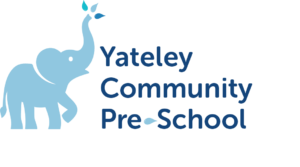POLICIES
Policies and procedures are essential to help us provide good quality provision that is compliant with the Statutory Framework for the Early Years Foundation Stage (EYFS). They do this by explaining to staff and parents about the type of childcare we offer and what actions we take in practice to achieve this. The EYFS requires us, to have written policies and procedures; and to provide staff with training at induction to ensure that they fully understand, and know how to implement, the policies and procedures and to ensure that they are accessible and clearly explained to parents.
The EYFS outlines the learning and development, assessment, and safeguarding and welfare requirements that all early years providers on the Early Years Register must meet to ensure children learn and develop well and are kept healthy and safe. Ofsted defines the different types of early years and childcare providers as:
- Childcare on domestic premises: a group of four or more people working with children in someone’s home.
- Childcare on non-domestic premises: a person or organisation providing care on premises that are not someone’s home, such as a purpose-built nursery or a village hall. This covers private and voluntary nurseries, pre-schools, out-of-school clubs and holiday play schemes.
- Childminder: childminders on the Early Years Register provide care for one or more children aged between birth and five, to whom they are not related, for reward in someone other than the child’s home – usually their own.
There are ten overarching Safeguarding and Welfare Requirements within the EYFS, some of which are broken down into further headings:
You can view our guide to policies here.
Child protection
We must be alert to any issues for concern in the child’s life at home or elsewhere. Yateley Community Pre-school must have and implement a policy, and procedures, to safeguard children.
Safeguarding and Child Protection
Children’s rights and entitlements
Health and safety general standards
Physical intervention and manual handling
Maintaining children’s safety and security on premises
Supervision of children on outings and visits
Critical incident policy and procedure
Staff Qualifications, Training, Support and Skills
The daily experience of children at Yateley Community Pre-school and the overall quality of our provision depends on all our practitioners having appropriate qualifications, training, skills and knowledge and a clear understanding of their roles and responsibilities.
Induction of Employees and Volunteers
Key Person
Each child must be assigned a key person. Their role is to help ensure that every child’s care is tailored to meet their individual needs, to help the child become familiar with the setting, offer a settled relationship for the child and build a relationship with their parents. Staffing arrangements, in terms of staff:child ratios must also meet the needs of children and ensure their safety.
Health (Medicines, Food and Drink and Accident or Injury)
We must promote the good health of children attending the setting. We must have a procedure, discussed with parents and/or carers, for responding to children who are ill or infectious, take necessary steps to prevent the spread of infection and take appropriate action if children are ill.
Managing children who are sick, infectious, or with allergies
Recording and reporting of accidents and incidents
Managing Behaviour
We are responsible for managing children’s behaviour in an appropriate way.
Safety and Suitability of Premises, Environment and Equipment
We must ensure that our premises, including outdoor spaces, are fit for purpose. We must have, and implement a health and safety policy, and procedures, which cover identifying, reporting and dealing with accidents, hazards and faulty equipment.
Fire safety and emergency evacuation
Special Educational Needs
We must have arrangements in place to support children with SEN or disabilities. Providers who are funded by the local authority to deliver early education places must have regard to the Special Educational Needs and Disability Code of Practice.
Valuing diversity and promoting equality
Information and Records
We must maintain records and obtain and share information (with parents and carers, other professionals working with the child, and the police, social services and Ofsted as appropriate) to ensure the safe and efficient management of our setting, and to help ensure the needs of all our children are met.
Confidentiality and client access to records
Working in partnership with other agencies
Procedure to follow in the event of the Broadmoor Hospital alarm being raised
Yateley Community Pre-School must meet all the statutory requirements of the Early Years Foundation Stage and must take all necessary steps to keep children safe and well. Each of the policies and procedures that we are required to have in place are provided in this publication and organised under each of the Safeguarding and Welfare Requirements of the Early Years Foundation Stage as they appear above. Also included are policies or procedures that the Alliance recommends as good practice.
Yateley Community Pre-school is required to assess risks to children’s safety and review risk assessments regularly; making written risk assessments in relation to specific issues where they determine it will be helpful. Template risk assessments have been included, as in some cases these stand alongside procedures, especially, for example, health and safety procedures.
The overarching policy statement is set out at the start of each section, followed by the relevant procedure describing how the policy will be fulfilled in a consistent and standardised way. References to relevant legislation or guidance are then included at the end of each policy. All staff and parents should be included in adopting, implementing and reviewing policies so that all adults involved can influence the way the setting is run.
Adopting policies
- Copies of the policies and procedures to be adopted should be made available to all parents and staff.
- A meeting to discuss and adopt the policies and procedures should be held. This will give everyone the opportunity to discuss and fully understand each policy statement and procedure.
Implementing policies
- All new parents, employees and volunteers should be introduced to the setting’s policies and procedures.
- It should be explained to parents, employees and volunteers that the policies contain the rules required for running the setting in a way which complies with the requirements of the EYFS and Ofsted registration and must be adhered to.
- All employees and volunteers should be aware of the content of the policies and procedures, and their role and responsibility in implementing them.
Reviewing policies
- Each policy and procedure should be continually monitored by collecting evidence about the results of its implementation.
- The evidence should be used to make any necessary changes to the policy and procedure and/or the way it is implemented.
- All staff and parents should contribute to the evidence collected and share in decisions about any necessary changes.
Our policies are those required by the Safeguarding and Welfare Requirements and the Learning and Development Requirements of the Early Years Foundation Stage.

 Yateley Community Pre-school
Yateley Community Pre-school